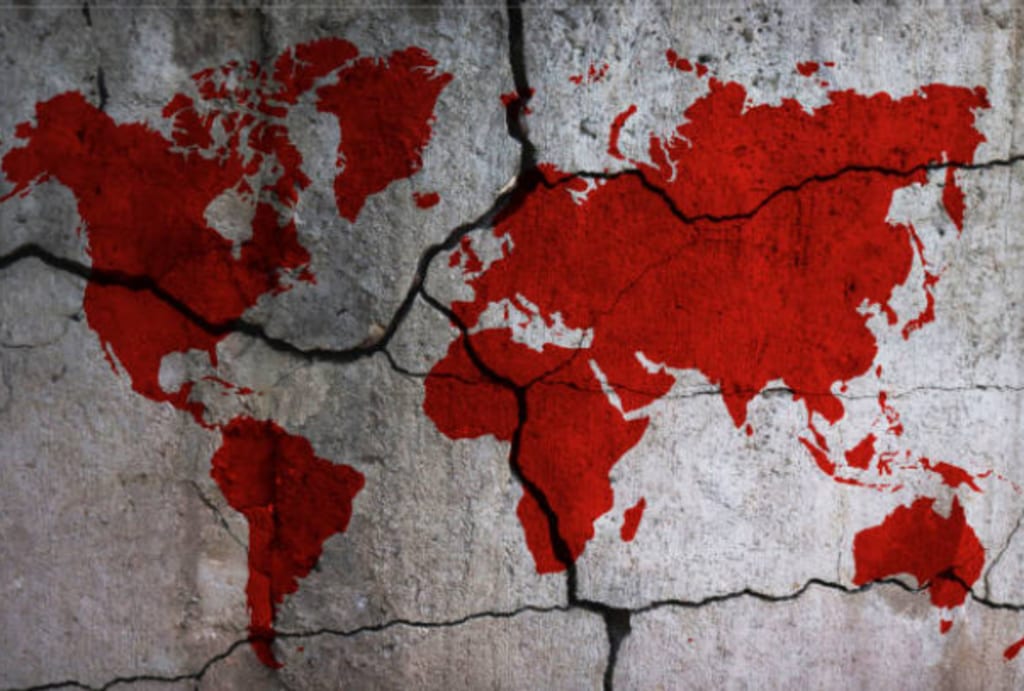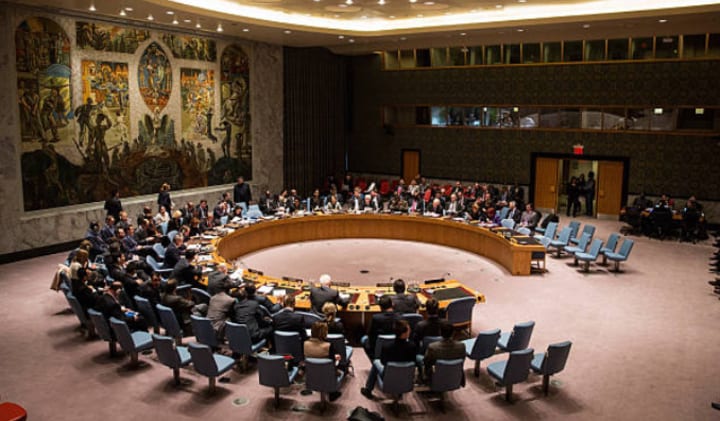Azadi: The Separatist Movements
Why we are divided?

You may have heard about the Israel-Palestinian conflict, or the Kashmiri people calling for their freedom. Several more sizable protests in Catalonia. Alternatively, the recent rise in hostilities between China and Taiwan. The issue involving Russia and Ukraine is also relevant here. A significant portion of the population wants to be cut off from the larger country's main territory, which is something that is common in these cases. Let's learn why it is so and how.
Separatism is the advocacy of cultural, ethnic, tribal, religious, racial, governmental or gender separation from the larger group. As with secession, separatism conventionally refers to full political separation. Groups simply seeking greater autonomy are not separatist as such.
How to make a country?
In modern times, there are no such specific conditions that are essentially required to form a country. But "The 1933 Montevideo Convention" declared 4 main criteria to be a country.
- A permanent population
- A well-defined territory
- A functional government
- Sovereignty of the country
But there are many countries that have all of these 4 criterions but they are not a country. Because rest of the countries do not recognize them. Take Taiwan for example, It is a full-time sovereign country. But only 14 countries recognize it as a country. In order to get a seat in the UN, the approval of the permanent members of The Security Council is required. But every time China gives veto against Taiwan. Because China thinks Taiwan as it's part. However, that's a different topic. But the same situation is for Kosovo and Palestine.

Again, some countries put forward some conditions to be separated from it's mainland. For example, the British government says to ensure the following things to get recognition from them.
- Fulfill the criteria of the Montevideo Convention.
- Sign up to the human rights obligation of UN.
- Give rights to minority community.
- Respect International laws.
Again, there are international politics. Like Catalonia is a state in Spain, that wants independence. But other countries which have good relations with Spain are not recognizing it as a country.
Why does Separatism occur?
So the question arises why do some groups of people want a different country? Why Separatism occurs? Experts say there are a few reasons.
First of all, the cultural reasons. Culture means specific religion, ethnicity, culture or minority group. Some people feel that their religion, ethnicity or culture is in danger if they continue to be a part of a big country. So they wish to form a separate country of their own. Hatred towards others' cultures may be also a reason here.
We also consider the economic and political reasons here. If the minority people think that they are not given enough economic facilities or their resources are used rigorously by the main govt. without giving them the profit they demand their rights. In case of political reasons the injustice political decisions of the govt. are included here.
The region of Catalonia is one of the richest regions in Spain. This is one of the biggest reasons behind their independence movements.

Result of Separatism
Most of the time the govt. puts pressure on the minority group to restrain from movements. But many a time when the movements get a good flow they go for a referendum. But that also doesn't bring any good results.
In 2017, a referendum was conducted in Catalonia . The people were asked if they wanted to make Catalonia an independent country . More than 90% of the people said that they wanted to become an independent country, separate from Spain . What was the result of this? Spain declared it illegal and unconstitutional and completely rejected the referendum.
A similar thing happened in 2017 in Kurdistan, which is a region within Iraq . A referendum was conducted there as well . More than 90% of the people said that they wanted Kurdistan to become an independent country, separate from Iraq. But the Iraq govt. also rejected it.
Most of the time it is difficult for the new country to sustain after separation. The following problems may occur there--
- Civil war and power game with dirty politics
- Violence
- Economic crash
- Inflation.
South Sudan, the newest UN member, gained its independence in 2011 from Sudan. However, a civil war broke out soon after the country gained its independence. Still, they experience violence, hyperinflation, and other problems. They are one of the least developed nations in the world. When Eritrea gained independence from Ethiopia in 1991, a similar situation occurred. Following that, there was a civil war, and the nation is now governed by a dictator.
A successful example of Separatism is Bangladesh. They have prospered much after their independence from Pakistan in 1971. They continue to advance while leaving Pakistan behind in several economic areas at present. East Timor was created in 2002 being separated from Indonesia. And they are now a developing nation. Experts believe that foreign help are mainly responsible for their success as a new country.
Role of the Parent Country
The responses of the parent country have a significant impact on the success or failure of the new nation. If the parent country shows aggressive behavior to them like China is showing to Taiwan or Hong Kong; the countries get another reason to show why they wanted independence.
The protesters of Hong Kong were extremely peaceful and China reacted with violence against them . So the international eye sided with the Hong Kong protesters and separatists.
Violence creates more violence. So the main govt has to come to middle ground with the separatists. Greenland is a country that is politically under Denmark. Greenland received autonomy from Denmark in 1979, although important sectors like foreign policy, finance, and defense were kept. However, Greenland received increasing sovereignty from Denmark throughout time. Currently, Denmark has granted Greenland complete freedom, and if they choose independence, they will receive it following a referendum. But when a survey was done to see if they wanted independence, 75% responded that they did.
However, the majority of the populace stated that they do not want complete independence after being informed that their quality of life might decline following independence. Since the Danish government provides 2/3 of the budget for the Greenland government and the economy of Greenland is not so huge that it could earn so much money on its own.
Conclusion

A majority of the time Separatism results in poorer circumstances. The government must compromise with minority groups' demands in order to guarantee their adequate living conditions and other rights, including political, and social rights. Here, the European Union is a good case study. The same currency is used throughout the whole European Union nations, and there are no physical boundaries between any of the member nations. Separatism also doesn't happen often.
If every country wants to be separated according to their ethnicity then there would be more than 8000 countries. But that's merely possible. So separatism is not always the option. Hoping that all the countries demanding independence get their rights, I would like to conclude here.
About the Creator
Tanvir Rashik Shafim
I'm an enthusiastic writer and want to make sure that people can experience life in all of its forms through writing | Writes about Philosophy, Geopolitics, Tech, Psychology and more.






Comments
There are no comments for this story
Be the first to respond and start the conversation.